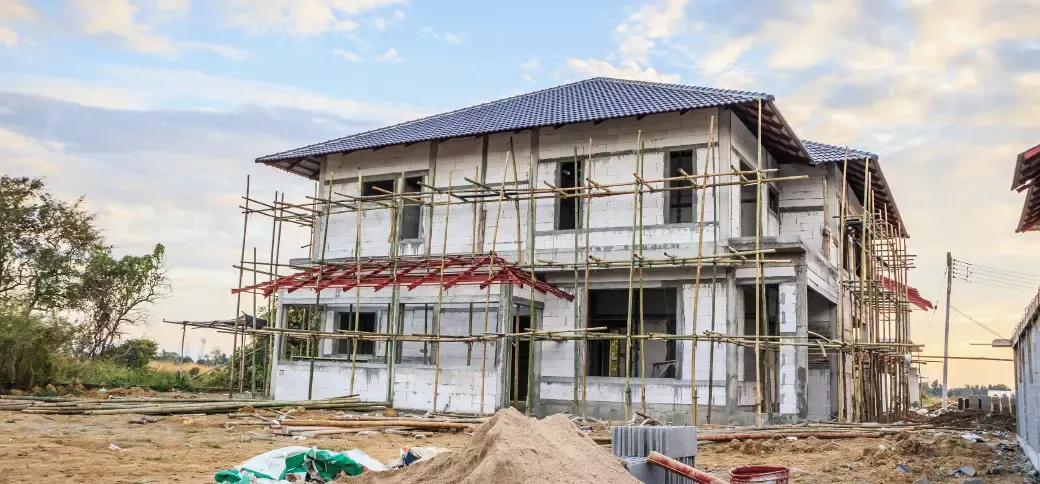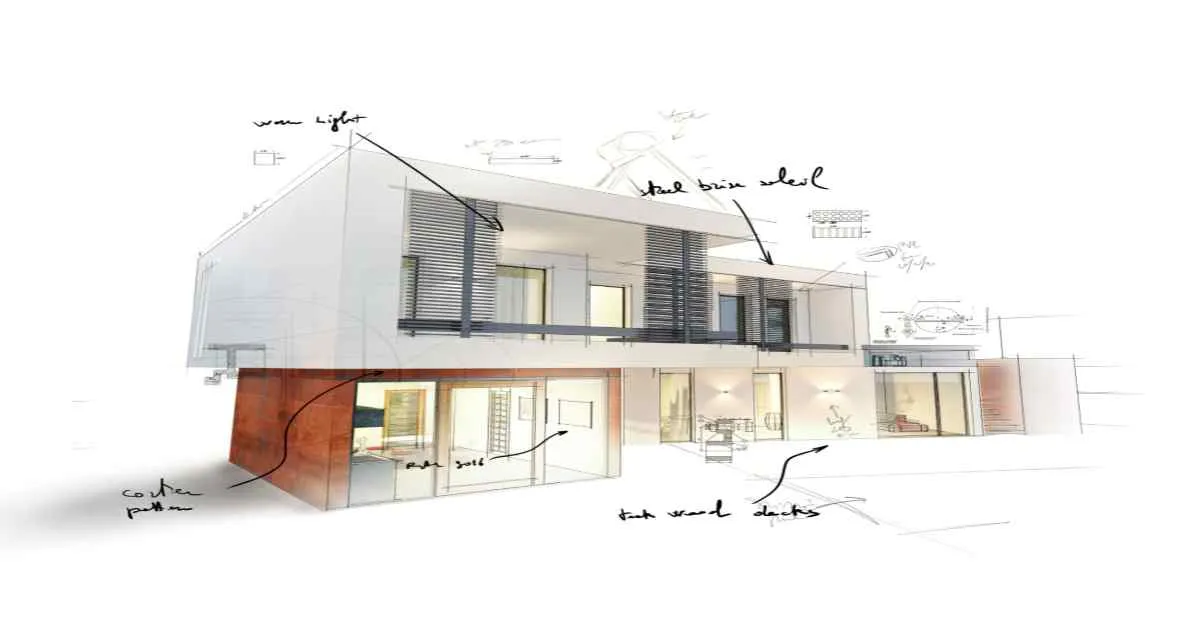- https://rakeshnarula.com/bank-auction-property-in-india-risks-buying-guide-2024/
Table of Contents
Quality Service Guarantee Or Painting Free

Get a rental agreement with doorstep delivery

Find the BEST deals and get unbelievable DISCOUNTS directly from builders!

5-Star rated painters, premium paints and services at the BEST PRICES!
Loved what you read? Share it with others!

Bank Auction Property in India: Step-by-Step Process, Advantages, and Risks Explained
Table of Contents
Thinking about bidding on an auction property? What is the step-by-step process for an individual to successfully bid on a bank auction property in India? A bank auction property refers to property that has been seized and put up for sale by banks when borrowers fail to repay their home loans or EMIs. The SARFAESI Act governs it, and banks recover dues by conducting e-auctions where interested buyers can place bids. While these properties are available at lower prices compared to the market rate, it's essential to understand the rules, eligibility requirements, documentation, and bidding process involved. In this blog, you’ll learn more about the bank auction process, documentation, rules, and much more.
Why are Properties Auctioned by Banks?
An Indian bank typically auctions off property that arises from loan defaults. When borrowers fail to repay their home loans or any secured debt, banks step in to recover their dues by seizing and selling the pledged assets. Below are the detailed points on why banks auction properties [1]:
- A bank auction is often started after a borrower misses three consecutive EMI payments on a home loan, which results in foreclosure.
- The consumer is given 60 days to respond to a notification asking them why the bank shouldn't start an auction of their property owing to payment default.
- If the borrower makes the required payments, this notification is withdrawn. If not, the borrower may object within 60 days and provide a cause for not making EMI payments.
- If the borrower doesn’t respond or the bank is unsatisfied with the response, the bank may start the bank auction process.
- After this notice has expired after 60 days, the bank has 30 days to hold an auction for the property. 6. REO auction properties offer a chance to find hidden gems at below-market prices but require some research and planning before diving in.
Reasons to Buy a Bank Auction Property in India
Here are some reasons why you should consider buying at a bank auction.
Quality Service Guarantee Or Painting Free

Get a rental agreement with doorstep delivery

Find the BEST deals and get unbelievable DISCOUNTS directly from builders!

5-Star rated painters, premium paints and services at the BEST PRICES!
- Reduced Property Rates: A property purchased at a bank auction has several incredible advantages. Lower and more reasonable prices are one of these advantages. The bank estimates the property's worth to be 15% to 20% less than the current market rate.
- Ready-To-Use Properties : Bank auction properties in India are often ready for move-in. After the sale is completed, the buyer can start moving into the property right away. Thus, these properties offer a great deal of convenience and time savings.
- No Legal Barriers: Banks inspect each auction item. Therefore, they are not subject to any legal disputes.
- Great Locations: The majority of the properties up for auction at banks are situated in upmarket locations. They are, therefor,e very lucrative options for everyone.
Risks Associated with Buying Bank Auction Properties for Sale
Despite all the previously mentioned benefits, buying a house at a bank auction involves risks. Continue reading to learn more about them.
- Remaining Dues: Purchasers are liable for covering any unpaid obligations related to the bank auction property.These dues include items such as utility bills, society fees, statutory charges, municipal taxes, and other expenses. They also include encumbrances such as leases tied to property and legal obligations.
- Buyers Must Do Additional Work: As part of their due diligence, buyers must conduct a title search and verify the property's ownership. Banks neither take possession of the property nor take on any liability for it.
- Pre-Bidding Deposits: When buying a property in a bank auction, buyers must pay down 10% to 15% of the total property value as a pre-bidding deposit. Furthermore, if they submit the winning bid and fail to make the required payment, they lose the pre-bid cash.
- May Require Repairs and Renovation: With houses for sale at bank auctions, buyers have few alternatives regarding location or price. It may be challenging for buyers to inspect a home and determine its exact physical condition.
- Illegal Occupants: As the new owner, evicting unauthorised residents is your responsibility. Visit the property and confirm its emptiness before making a purchase. After the transaction, clear the property of squatters. Prior renters may also be unwilling to leave.
READ ALSO: How To Plan A Home Purchase in India?
Documents Required for Buying Property from a Bank Auction
When purchasing property at a bank auction, bidders must submit all necessary documents to participate in the auction and complete the transaction smoothly. Here’s a list of the key documents required [2]:
- PAN card
- Aadhar card
- Utility bills
- Voter ID
- Passport-sized photographs
- Income proof - salary slips, bank statements
Property Bank Auction Process in India- Step By Step
The process of purchasing a bank-seized property for sale in India is governed by strict guidelines under the SARFAESI Act. When borrowers default on loans, banks take possession of the property and initiate an auction to recover dues.
- Step 1- Finding Bank Auction Property Listings: Newspaper notices posted at bank branches, and notices put in the community are some other information sources. On the websites of asset reconstruction firms like ARCIL, you may also view the auction notice. The Indian Banks Association (IBA) launched the Indian Banks Auctions Mortgage Properties Information (IBAPI) portal as part of the Department of Financial Services (DFS), Ministry of Finance, overarching policy to provide a common platform to display information about mortgaged properties to be sold at an online auction by Banks, starting with Public Sector Banks.
- Step 2- Conduct Inspections : Conduct a preliminary check on your own after narrowing down the bank auction properties. Banks are now mentioning the inspection date and time in auction notices. To inspect the property, please visit the location at the appointed time. You can reach the concerned officer using the information provided in the e-auction notice.
- Step 3- Submit a Tender Form and Pay Earnest Money Deposit: You should deposit EMD (Earnest Money Deposit) with the tender form, which you can collect. EMD is often deposited using a demand draft or banker's check. Please review all of the information on the tender form before submitting it before the deadline. The bank also requires KYC papers in addition to the tender document. As there is little time left, prepare all your paperwork in advance.
- Step 4- Start Bidding: You can submit your bid in various ways. You can use the bid form to make your offer. If you want to make several bids in "multiples of increase in bid amount," you must submit different Tender forms or bid forms. Sometimes a physical tender form is submitted, and a separate online bid form is used to submit the bid.
- Step 5- Check Results on the Auction Date: Visit the webpage, bank, or auction location on the designated auction day to find out if you won the bank auction. All qualified bids will be opened by the bank in front of all bidders if bids are filed via tender or bid form.
- Step 6- Registration of Sale Certificate at the Sub-Registrar’s Office: You will receive a sale certificate from the bank once the remaining 75% payment has been made. However, the title transfer is not complete until the sale certificate is registered in the sub-registrar's office.
READ ALSO: 7 Biggest Mistakes You Can Make as a Home Buyer
Required Finance for Buying Property at Auction
Here is how a buyer of real estate can finance properties being sold at bank auctions-
- Make a pre-bidding deposit equal to 10% to 15% of the total property value.
- In the specified number of days, pay an additional 15%. This time frame differs from bank to bank.
- Depending on the date assigned by the bank, the remaining balance must be paid in about a month.
Financing a Bank Auction Property
Financing plays a crucial role in the process of buying a bank auction property. Purchasing a property through bank auctions can offer attractive deals and opportunities, it is essential to understand the financing options available. Let's explore the various aspects of financing a bank auction property:
- Loan Pre-Approval: Before participating in a bank auction, it is advisable to obtain a loan pre-approval from a financial institution. This step helps determine your eligibility for a loan and gives you a clear understanding of your budget. NoBroker provides resources to help you know how to buy a bank auction property and navigate the financing process smoothly.
- Loan Amount: The loan amount for financing a bank auction property typically depends on the property's market value or the auction reserve price. Financial institutions typically provide loans that account for a certain percentage of the property's value, ranging from 70% to 90%.
- Loan Repayment Tenure: The repayment tenure for a loan on a bank auction property can vary from 5 years to 30 years, depending on the financial institution and your preferences. It is advisable to consider the tenure carefully and opt for one that aligns with your financial goals.
- Interest Rates: The interest rates on loans for bank auction properties may vary based on various factors such as the financial institution, loan amount, tenure, and your creditworthiness. It is essential to compare interest rates offered by different lenders and choose the one that offers the most favourable terms.
- EMI Calculation: To determine the Equated Monthly Installment (EMI) for your loan, you can use online EMI calculators or consult with your lender. EMI calculators take into account the loan amount, interest rate, and tenure to provide you with an estimate of your monthly repayment amount. NoBroker offers a bank auction property registration and EMI calculator to assist you in the process.
- Loan Documentation: When applying for a loan to finance a bank auction property, you will need to provide certain documents such as identity proof, address proof, income proof, bank statements, property documents, and auction-related documents. Ensure that you have all the necessary documents ready to expedite the loan approval process.
- Loan Disbursement: Once your loan application is approved, the financial institution will disburse the loan amount based on the payment schedule and terms agreed upon. It is important to review the terms and conditions of the loan agreement carefully before signing.
Income Tax Deduction on Buying a Bank Auction Property
When it comes to buying a bank auction property, one of the significant advantages for buyers is the potential income tax deduction. The Indian Income Tax Act provides certain provisions that can help buyers save on taxes when purchasing bank auction properties. Let's explore the income tax deductions available and how they can benefit buyers:
- Interest Deduction on Home Loan: Buyers who finance the purchase of a bank auction property through a home loan are eligible for income tax deductions on the interest paid. Under Section 24(b) of the Income Tax Act, buyers can claim deductions of up to Rs. 2 lakhs per year on the interest component of their home loan. This deduction is available for self-occupied properties as well as properties that are let out.
- Principal Repayment Deduction: Additionally, buyers can avail of income tax deductions on the principal repayment of the home loan under Section 80C of the Income Tax Act. The deduction limit for Section 80C is Rs. 1.5 lakh per year, which includes other eligible investments such as EPF, PPF, and life insurance premiums. Buyers can include the principal repayment amount in this limit and reduce their overall taxable income.
- Stamp Duty and Registration Charges: Another income tax deduction available to buyers is for the expenses incurred on stamp duty and registration charges. Buyers can claim a deduction on these charges under Section 80C, subject to a maximum limit of Rs. 1.5 lakh.
- Rental Income Deduction: If the bank auction property is rented out, buyers can benefit from deductions on the rental income. Under Section 24 of the Income Tax Act, buyers can claim a deduction on the municipal taxes paid, as well as a standard deduction of 30% on the net rental income.
| Deduction | Maximum Limit |
| Interest on Home Loan (Section 24(b)) | Up to Rs. 2 lakh per year |
| Principal Repayment (Section 80C) | Up to Rs. 1.5 lakh per year |
| Stamp Duty and Registration Charges (Section 80C) | Up to Rs. 1.5 lakh |
| Rental Income Deduction (Section 24) | Municipal taxes and 30% standard deduction |
By taking advantage of these income tax deductions, buyers can significantly reduce their tax liability and make buying a bank auction property even more financially beneficial. Remember to keep track of all relevant documents and consult with professionals to ensure a smooth and hassle-free process.
Key Points to Remember When Buying a Bank Auction Property in India
While buying a bank auction property, remember–
- Obtain important documents before purchase
- Banks keep the money if unpaid on time
- Promptly evacuate after inspection
- Verify unpaid dues before buying
- Avoid properties with squatters
- Make a budget, organise funds
- PSU bank auctions are cheaper than private ones
Book Your Legal Services Via NoBroker
Once sold, the property will be the sole responsibility of the buyer, and hence any issues related to the property will also be the buyer’s responsibility. If a bank auction property does not seem like your cup of tea, NoBroker offers a wide range of homes to choose from in the cities of your choice. Our team of expert property lawyers helps you verify ownership history, check for any pending litigations, validate bank notices under the SARFAESI Act, and review sale certificates. We also assist with drafting and scrutinising documents, handling Khata transfers, and ensuring smooth registration. Head over to our website at NoBroker.in to know more.
Frequently ASked Questions
Ans. A bank real estate auction, also known as a bank foreclosure auction, is a public sale of property which a borrower has defaulted on their mortgage. The bank seizes the property and sells it to the highest bidder to recoup its losses.
Ans. There are several ways to find bank e-auction properties. You can check the websites of individual banks, online auction platforms like "IBAPI: ibapi.in" (Indian Banks Auctions Portal).
Ans. Bank-seized properties can be a great way to find properties at below-market value. However, there are also risks involved, such as the need for repairs or facing competition from other bidders. It's essential to conduct thorough research on the property before bidding.
Ans. Buying bank-seized houses for sale can potentially offer properties below market value. However, there can also be risks involved, so thorough research is crucial.
Ans. Before bidding on bank-seized property, investigate the property's condition, research fair market value, understand the auction process and any associated fees, and be prepared with financing options.
Ans. First, register on the bank’s auction portal, pay the earnest money deposit (EMD), participate in the e-auction, and complete payment within the bank’s timeline after winning the bid.
Ans. Yes, many banks provide home loans for a bank auction properties.
Recommended Reading

House Construction Cost: Per Sq Ft Rates, Material Cost and GST Rates in 2026
January 31, 2025
127600+ views

Market Value in Andhra Pradesh: District-Wise Rates and Latest Market Trends in 2026
February 12, 2025
97602+ views

5 Lakh Budget House Plans With Smart Layouts and Cost-Effective Designs in 2026
January 31, 2025
89352+ views

Need to Know What Carpet Area Calculation is? Read on to Know All about it
January 31, 2025
56717+ views

Bank Auction Property in India: Step-by-Step Process, Advantages, and Risks Explained
January 31, 2025
36926+ views
Loved what you read? Share it with others!
Most Viewed Articles

GFRG Panels: A New Technology in Building Construction
January 31, 2025
261920+ views

Top Cleanest Cities in India: Swachh Survekshan Top Ranked List
July 25, 2025
224952+ views

February 6, 2026
213719+ views

How Mivan Construction Technology Is Transforming the Art of Building!
January 31, 2025
183856+ views

CIDCO Lottery: Application Process, Eligibility, Flat Prices and Dates in 2026
April 30, 2025
138402+ views
Recent blogs in
February 19, 2026 by Krishnanunni H M
Top 10 Construction Companies in Ghaziabad: Leading Builders and Developers List in 2026
February 19, 2026 by Kruthi
Top 10 Construction Companies In Jaipur for Residential and Commercial Projects in 2026
February 19, 2026 by Krishnanunni H M
10 Best Construction Companies In Pune: Trusted Builders and Contractors in 2026
February 18, 2026 by Kruthi









 Full RM + FRM support
Full RM + FRM support

Join the conversation!